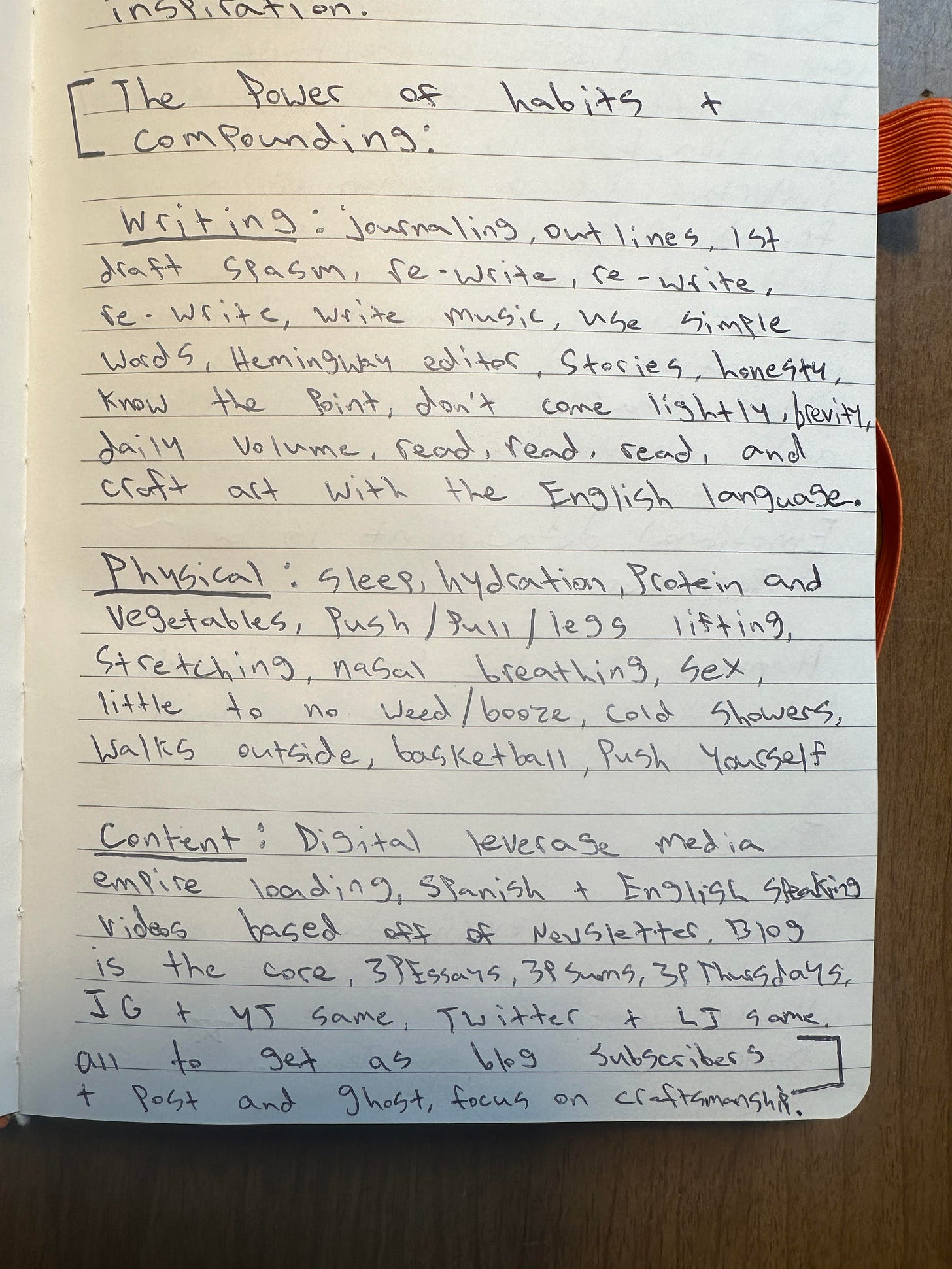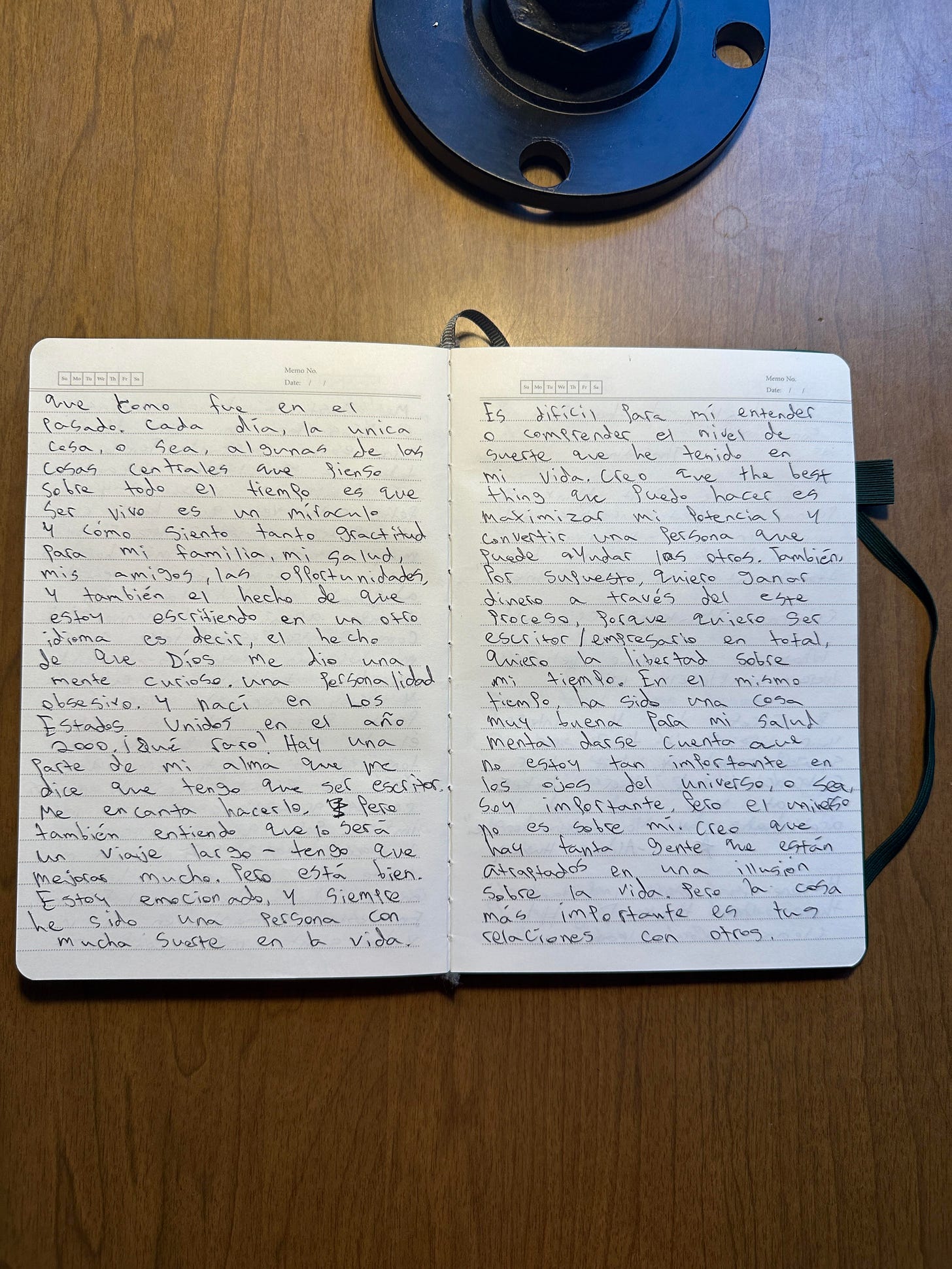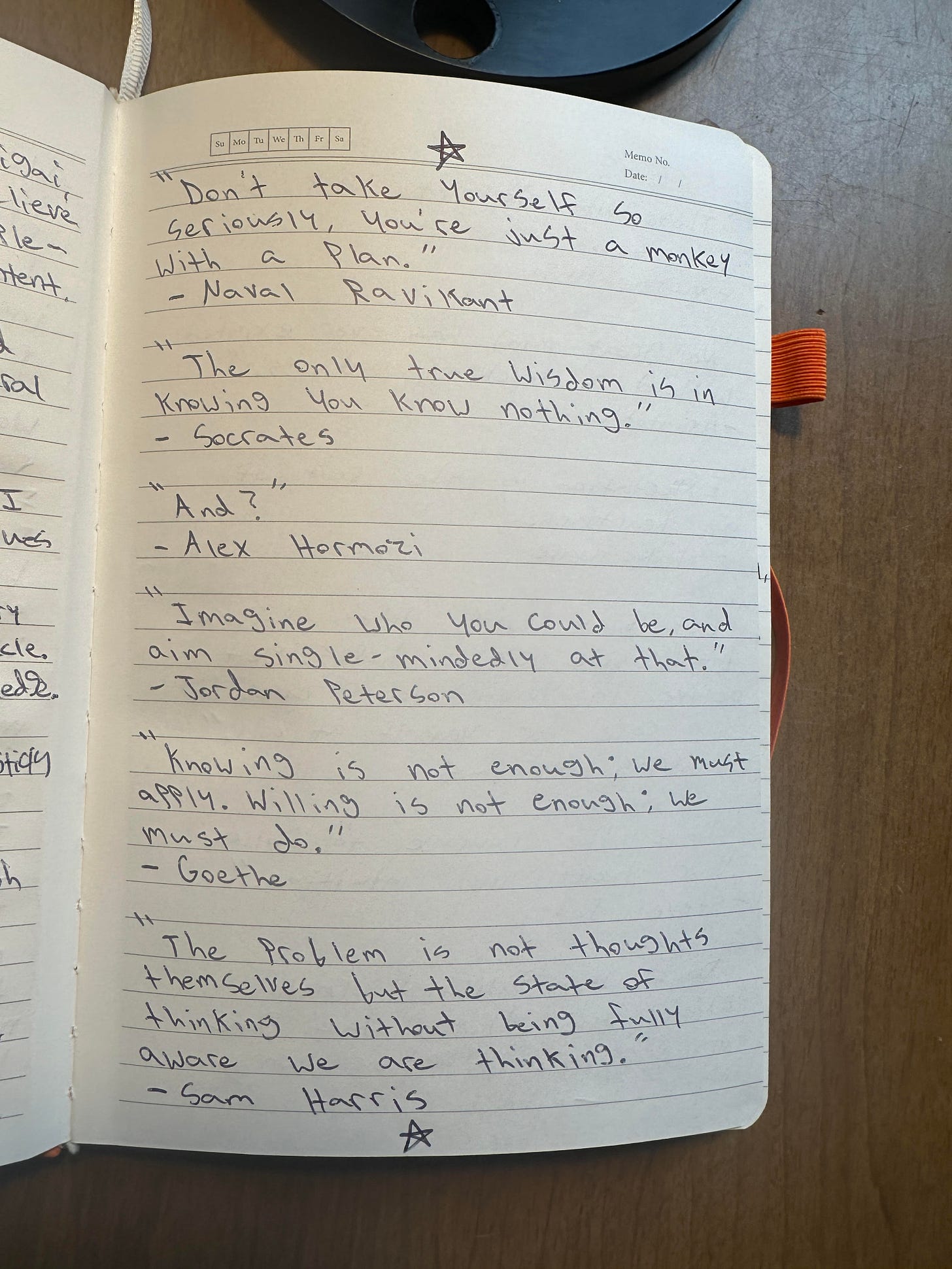Self-Discovery & Self-Mastery
Three Point Essay | The emotional, practical, and cognitive value of writing
I. Emotional Value of Writing
“If old memories still upset you” says psychologist Jordan Peterson, “write them down carefully and completely.”
Why would anyone want to do that?
Because problems worsen when you don’t acknowledge them. They don’t disappear. They linger in your subconscious—and they’ll haunt you from the shadows.
But by writing down your problems you bring them out of the shadows. “Writing forces you to hear your thoughts.” explains Substack writer Gurwinder Bhogal, “It is a confrontation with yourself.”
When you spill your issues onto the paper, you can come up with actual solutions. Because you’re not hiding from them—you’re accepting them and figuring out ways to handle them. You might even laugh at some and realize they aren’t a big deal.
It’s a cleansing. “Spiritual windshield wipers” is how Julia Cameron describes the emotional value of writing. Or in the words of Tim Ferriss “the most cost-effective therapy I’ve ever found.”
Writing is also the path to understanding yourself.
There’s this brilliant idea that the vital question is not “how do I get what I want?” it’s “what do I want?”
This is a deep question. Much deeper than you think. Writing is the way to dig.
As David Perell said “Whenever you write, you’ll find holes in your thinking that only the pen can discover.”
With the pen, you can discover your purpose. You can discover what you truly value. You can discover who your real friends are. You can discover what your ideal partner and lifestyle would look like.
Writing is like capturing a flow of thoughts and solidifying it on paper. It allows you to review parts of your mind and question, refine, and improve your beliefs and motivations. Repeating this process is the basis of self-knowledge and personal growth.
II. Practical Value of Writing
Writing is particularly useful when you use it to change your behavior.
One way to do this is to create contracts with yourself.
For example, in 2020, I made a contract with myself that I would lift weights 3x a week no matter what. 3 years later, I’ve honored the deal. Another time, after my birthday in 2021, I made a contract that I would never smoke nicotine ever again. I haven’t since. I plan to make more, much more important contracts after university.
When you look at a piece of paper and there’s things you wrote to start or stop doing, but you’re not living up to them, it sucks. It’s a painful feeling. Because if you can’t even trust yourself, why should anyone? They won’t.
With contracts, you’ll begin to hold yourself accountable to your own actions. And you’ll start to actually make positive changes.
Through writing you can also internalize the right habits and ways of thinking. The definition of internalization is “making attitudes or behavior part of one's nature by learning or unconscious assimilation.”
In some sense, writing is performing unconscious assimilation on yourself. What you express on paper becomes part of your psyche, “itched in your lineage, whether you realize it or not” according to avid writer Matthew McConaughey.
In other words, you can, in some sense, brainwash yourself into becoming the person you want to be. Writing down quotes that inspire you is one way to do this. It’s something I do every day.
III. Cognitive Value of Writing
Writing engages areas in the brain that develop memory skills.
“The value of reading, and of writing things down that we read, or hear, cannot be overstated” says neuroscientist Andrew Huberman.
“When we read text or listen to something and then write key aspects/takeaways down by hand- not typing, it engages our motor control centers in ways that deeply embed that information to our memory” Huberman continues, “Taking notes, however cursory, turns out to be the best way to remember and implement information later.”
Plus, writing can supercharge your mind into a learning machine. Because the best way to understand something better is to write about it—for something you wrote to make sense, you need to have some understanding of it. Writing to learn is a beautiful loop.
Best of all, the more you write, the more articulate you become. The more articulate you become, the more dangerous you are.
People who don’t express their thoughts, emotions, desires, and vision well—because they don’t read or write—can’t compete with you.
While others stutter over vague messages and ‘likes’ and ‘ums’, your precise words and clear signals slash through social situations. You’re more likely to get what you want, whatever that is. You’re more likely to succeed in life, however you define success.





SOLID! ORALE BRO.
I am a great believer in writing things down !